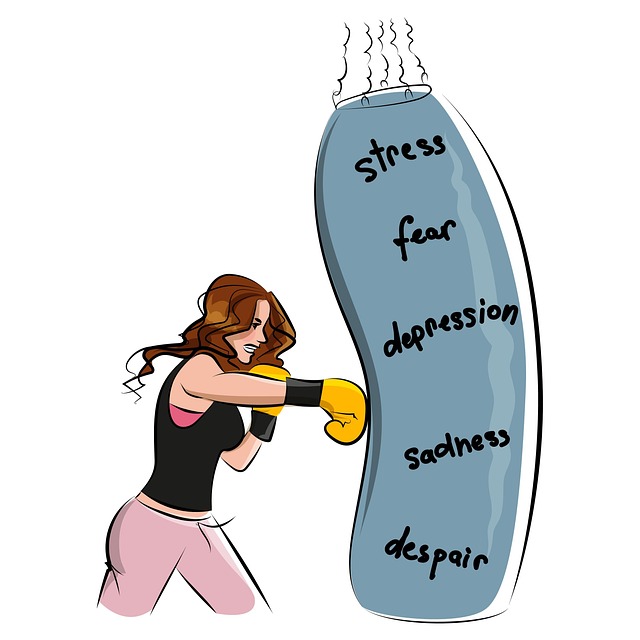Westminster Independent Medical Evaluations Therapy (WIMET) combines comprehensive risk assessments, evidence-based strategies, and tailored interventions to prioritize patient safety and mental health management. Initial evaluations identify risks through psychiatric history, current symptoms, and environmental factors, guiding personalized therapy sessions incorporating self-care routines, burnout prevention, and emotional regulation techniques. The holistic approach includes therapy, Mental Wellness Journaling Exercises, and session management strategies to foster resilience, enhance well-being, and continuously improve harm minimization planning based on feedback and progress assessments.
“Risk assessment and harm minimization planning are critical components in ensuring patient safety during medical evaluations, particularly in the context of Westminster Independent Medical Evaluations Therapy. This article delves into essential strategies for navigating these processes effectively. We explore ‘Understanding Risk Assessment in Medical Evaluations’ and ‘Westminster’s Approach to Harm Minimization Planning’. Additionally, we uncover key components of comprehensive risk assessments and effective therapy session management techniques. Finally, we emphasize the importance of continuous improvement through monitoring and updating harm minimization plans.”
- Understanding Risk Assessment in Medical Evaluations
- Westminster's Approach to Harm Minimization Planning
- Key Components of a Comprehensive Risk Assessment
- Strategies for Effective Therapy Session Management
- Continuous Improvement: Monitoring and Updating Harm Minimization Plans
Understanding Risk Assessment in Medical Evaluations

Understanding Risk Assessment in Medical Evaluations plays a pivotal role in healthcare, especially when it comes to Westminster Independent Medical Evaluations Therapy. This process involves meticulously examining and evaluating potential risks associated with an individual’s mental health and well-being. By assessing factors like history of psychiatric disorders, current symptoms, and environmental influences, medical professionals can identify areas of concern and tailor interventions accordingly.
In the context of therapy, risk assessment guides the development of a comprehensive harm minimization plan. This plan focuses on strategies to prevent or mitigate severe outcomes, such as suicide attempts or self-harm. Integrating concepts like Self-Care Routine Development for Better Mental Health and Burnout Prevention, healthcare providers can empower individuals with tools to promote Emotional Well-being Promotion Techniques. Through this holistic approach, Westminster Independent Medical Evaluations Therapy ensures not just the management of symptoms but also the overall enhancement of mental health resilience.
Westminster's Approach to Harm Minimization Planning

Westminster’s approach to harm minimization planning is comprehensive and evidence-based, focusing on a multi-faceted strategy that combines independent medical evaluations, therapy, and innovative emotional regulation techniques. The process begins with a thorough assessment of an individual’s mental wellness through specialized Westminster Independent Medical Evaluations, which provide crucial insights into their current state and identify potential risk factors. This data drives tailored therapy sessions designed to address underlying issues and strengthen resilience.
Complementing these interventions is the integration of Mental Wellness Journaling Exercise Guidance, fostering self-awareness and emotional intelligence. By encouraging individuals to reflect on their thoughts and feelings, this practice empowers them to proactively manage stress and prevent depressive episodes. Through a holistic approach that balances professional support with personal empowerment, Westminster strives to not only mitigate risks but also enhance overall mental wellness, ensuring a brighter and more balanced future for those seeking harm minimization planning.
Key Components of a Comprehensive Risk Assessment

A comprehensive risk assessment for Westminster Independent Medical Evaluations Therapy (WIMET) involves meticulous examination of various interconnected factors. Firstly, it delves into identifying potential risks and hazards specific to therapy settings, including the unique challenges associated with mental wellness, burnout prevention, and diverse client needs. This requires a thorough understanding of the therapeutic environment, staff capabilities, and resources available for risk management.
The assessment should encompass a systematic analysis of the existing policies, procedures, and protocols within WIMET. It evaluates their effectiveness in mitigating risks, ensuring compliance with relevant regulations, and fostering a safe, supportive atmosphere. Additionally, it considers client demographics, individual needs, and potential triggers, incorporating strategies for social skills training to enhance overall therapy outcomes while minimising harm.
Strategies for Effective Therapy Session Management

Effective therapy session management is a multifaceted approach that significantly enhances the outcomes of Westminster Independent Medical Evaluations Therapy. One key strategy is establishing clear communication channels. Therapists should encourage open dialogue, actively listening to clients’ concerns and feedback, ensuring every interaction is a two-way street. This fosters trust and engagement, allowing for more insightful exploration of issues.
Additionally, integrating conflict resolution techniques into session management can de-escalate tension and promote positive interactions. These techniques enable therapists to navigate challenging conversations constructively, helping clients manage emotions and reach consensus. Self-awareness exercises can also be valuable tools, encouraging clients to reflect on their thoughts and behaviors, thereby fostering personal growth and a deeper understanding of their well-being.
Continuous Improvement: Monitoring and Updating Harm Minimization Plans

Continuous improvement is a key aspect of effective harm minimization planning. Once a strategy for managing risks and promoting well-being is established, it’s crucial to regularly monitor its success and make adjustments as needed. This proactive approach ensures that the plan remains relevant and aligned with the individual’s evolving needs. By incorporating feedback from various sources, including therapy sessions, progress reports, and self-assessments (often facilitated by Westminster Independent Medical Evaluations), the harm minimization strategy can be refined to enhance its effectiveness.
Regular updates allow for a dynamic process that integrates new insights into mood management, resilience building, and emotional healing processes. This flexibility is essential as individuals navigate life’s challenges and successes. Through ongoing monitoring, the plan can adapt to changing circumstances, ensuring a more tailored and responsive approach to risk assessment and harm minimization.
Westminster Independent Medical Evaluations (WIME) understands that thorough risk assessment and harm minimization planning are pivotal in ensuring safe and effective therapy sessions. By employing a structured approach, as outlined in our article, professionals can navigate complex scenarios, mitigate potential harms, and foster positive outcomes for clients. The key lies in a comprehensive risk assessment, strategic session management, and continuous monitoring, all of which WIME’s methodology emphasizes. Through these practices, therapists can deliver high-quality care while upholding ethical standards, thereby enhancing client safety during every step of the therapeutic journey.









